By Sebastian Skov Andersen and Joyce Leung
“Her dress is too short” “I wish her boobs were larger”
Leung Hoi-ching is an elected district councillor in the Kwun Tong District Council from the Kwun Tong Future political party. Her campaign has just posted a political promotion video to her social media pages, and immediately the notifications started trickling in.
Reading through the comments, she contemplates whether to take the video offline again. Every other message is from a stranger sharing an unsolicited opinion about her appearance. She is wearing too much makeup, or her dress is inappropriate: too short, too long, the colour is too bright. They wish her breasts were bigger, her hips slimmer. There are so many she can’t keep track fast enough to delete them all. At times, half of all comments on her social media posts are sexually charged.
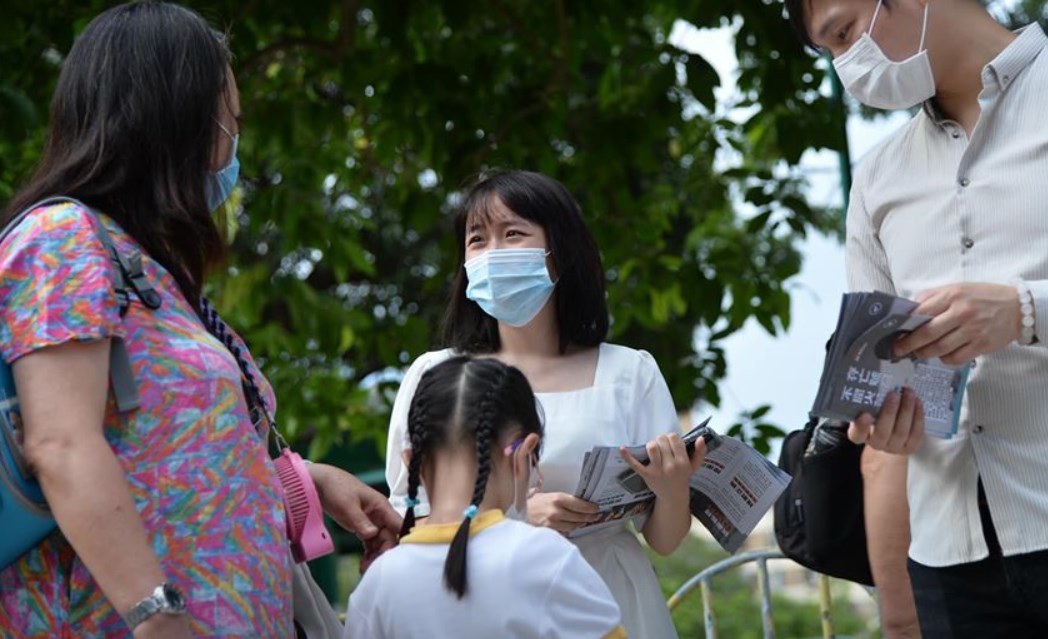
She decided the comments would stay online, and she will not be deterred. Had she decided to delete the whole conversation, it would not have been the first time.
Leung has previously felt forced to remove political videos and pictures from her Facebook page, against her will, because an overwhelming number of comments targeted and sexualised her appearance, she told HKFP.
Her email inbox is filled with hundreds of unsolicited sexual messages from men, as are her WhatsApp, voicemail, and text message inboxes. They are flooded with so-called “dick-pics,” sexual invitations, and rape threats – and those are only the tip of the iceberg.
“I get quite a lot of messages from strangers asking for sex, sending nude photos, asking me to send them photos, or telling me they’re going to jerk off to my picture. Many have even called me and asked how much I cost for an hour, or if they could hire me as a part-time girlfriend,” she said.
“I was so angry receiving these messages that my hands were shaking. I asked them, ‘what are you saying?’ One guy told me there are rumours that I have a part-time ‘girlfriend business,’ or that I was paid to have sex. Like, what the fuck?”.
Simply appearing on camera has provoked harsh reactions from Leung’s audience. After she posted a picture of herself putting stickers on elevators to protect against Covid-19, she said she received backlash because her face was included in the image.
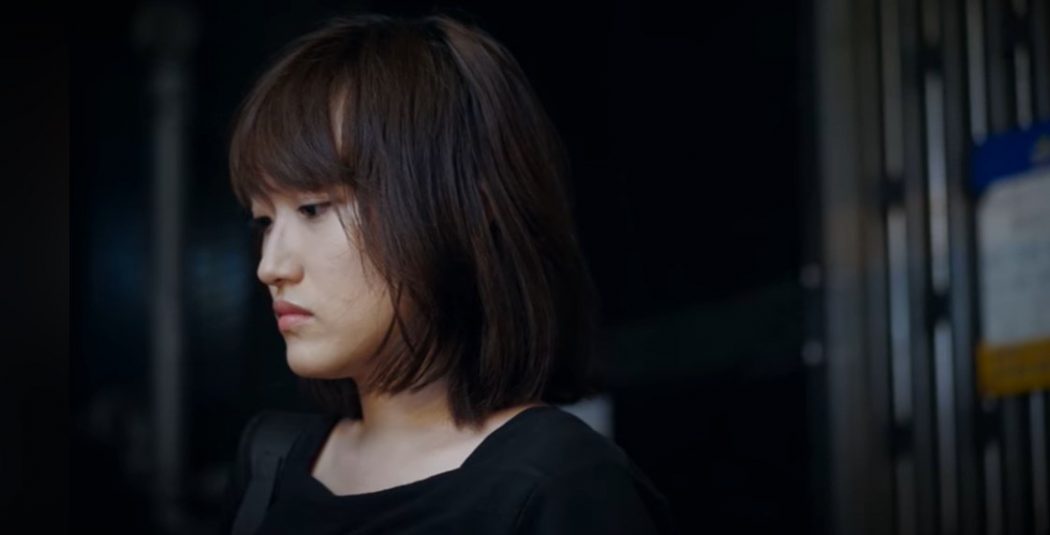
Whenever she has shared pictures from meetings or conferences, people have criticised her solely for including her face.
“I’m the one leading the meeting, why shouldn’t my face be on there?” she asked. “I would rather they attack my political stance than my appearance – it’s just a bunch of nonsense.”
HKFP has spoken to five woman politicians who all lamented that they have been sexually harassed on a daily to weekly basis – online and offline – and that sexism and misogyny permeated almost every nook and corner of politics.
They all considered their gender to be one of the primary challenges to achieving success in politics, largely because this factor alone makes them targets of sexual harassment and places them at a systemic disadvantage.

Ho Ka-yau, a former standing committee member of Demosisto, a political group which disbanded in June after the implementation of national security law, told HKFP she has experienced similar forms of harassment.
After her contact information was leaked on a website created by pro-government supporters, dedicated to doxxing pro-democracy protesters, hundreds of strangers messaged her with sexual requests and threats of all varieties.
“My phone vibrated all day long,” she said. “Most of the messages were from people asking me how much I charge per night, but there was one regular caller who kept asking me whether I’d sell my used period pads to him.”
“Sometimes it’s not worth it,” she said. “Once, people actually discussed my policies in a post, and then someone uploaded my picture and immediately the conversation changed to people saying ‘she’s ugly’ or ‘her boobs have gotten smaller’.”

She also expressed regret over some pro-democracy supporters who often dismiss her concerns about sexism and sexual harassment because “it’s not as important as the protests.”
Among pro-government supporters, there have been widespread rumours and jokes that women go to the frontlines because they hope to hook up with or “offer their services” to male protesters. They’ve dubbed them “angels,” a term commonly used by pro-Beijing supporters in smear campaigns against the protest movement.
Leung once received a photo of someone smearing what appeared to be their faeces on a banner with her picture and the word “angel” written next to it, she said.

A few months ago, Wong Ji-yuet – a political activist and former spokesperson for disbanded student activist group Scholarism – both caught heat and received support on social media after she alleged that officers from the Hong Kong Police Force had harassed her during a stop and search.
“Her boobs were much bigger in her Instagram photos,” they said, speaking amongst themselves right in front of her.
On another occasion, she said officers had placed bets on whether her nipples were pink or brown while detaining her.
On the internet, people have frequently asked Wong “how much do you cost” or threatened on Facebook and Instagram to rape her. These types of attacks have taken a toll on her mental health, with her self-confidence suffering the most. She said she doesn’t always feel safe doing the work she does.
‘Hot politicians’
Sexism and sexual harassment flourish on internet forums popular in Hong Kong. On LIHKG – a platform popular among protesters who use it to share information about the demonstrations – anonymous people create threads about “hot politicians” or the “girlfriendability” of female politicians.
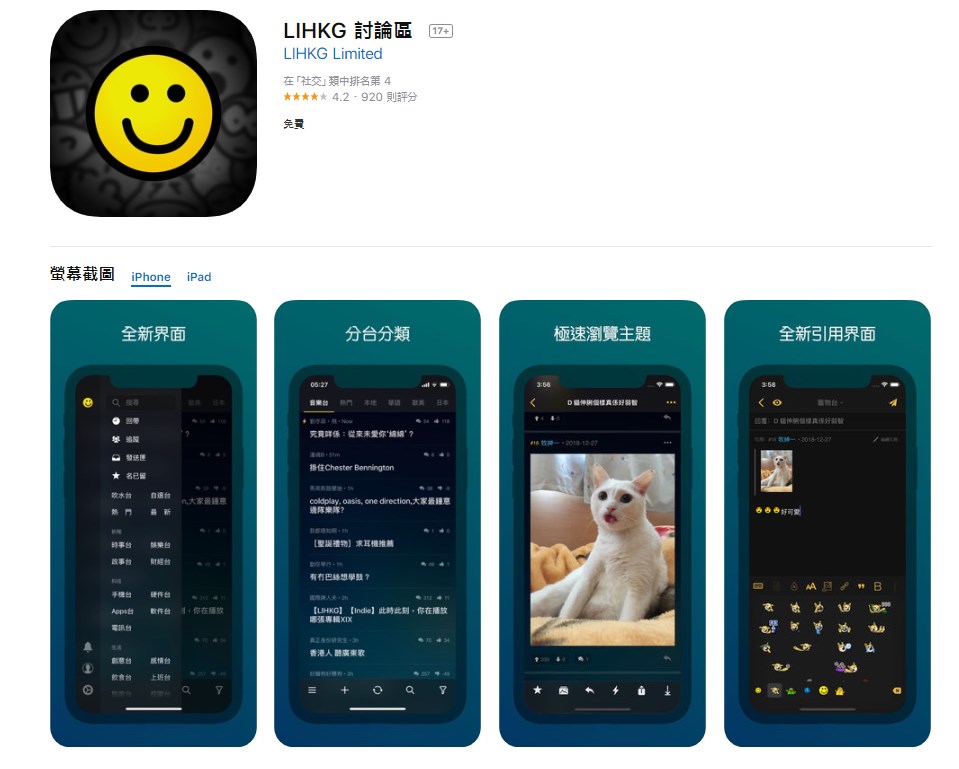
There, they post pictures and hold “discussions” on topics like “Leung Hoi-ching is hotter than Yau Wai-ching” and debate which politician would qualify as the superior girlfriend.
In one thread with hundreds of sexually loaded comments, one person said about the 2019 District Council elections: “Hong Kong is having elections in November, let’s see which woman politician is the hottest.” Another person said in a post about Leung: “I will vote for her boobs.”
When talking about female politicians, commenters typically add “baby” or “bb” after their names, such as “Hoi-ching bb.” In one thread alone, hundreds of messages like “BIIIIIG BOOBS” or “I really want to fuck Leung Hoi-ching bb” flooded the comment section.
Ho has been the victim of widespread sharing of manipulated photos of herself on LIHKG and other social media, in which situations entirely unrelated to sex were altered to be sexually suggestive. In one viral post, a pro-Beijing individual doctored a photo that showed Ho being carried under her arms by two policemen as they detained her.
In the original photo, she simply wore a white t-shirt, however, the manipulated version portrayed her with erect nipples that poked through her shirt. The post totalled several thousands of reactions, likes, and comments across various platforms.
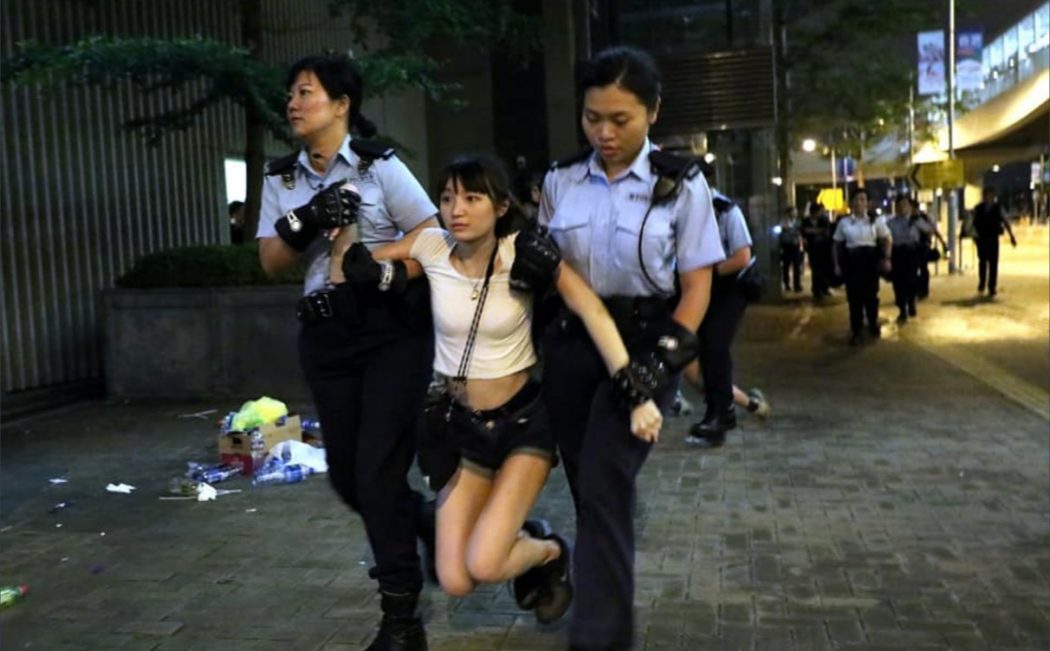
“They sent the photoshopped picture around, saying that I didn’t wear a bra, and that I was a slut and a whore and all that,” she said.
According to Puja Kapai, associate professor at the Faculty of Law at The University of Hong Kong, sexism and sexual harassment in politics is a reflection of the misogynist and patriarchal ideas that are prevalent in Hong Kong society as a whole, not just in politics.
“As we’ve had more female feminists and politicians in the field in recent years, we’ve seen gender becoming increasingly animated in politics. The reality is that people are sexualizing the body of female politicians, making them objects, even though it has nothing to do with their ability to perform in public office,” she said.
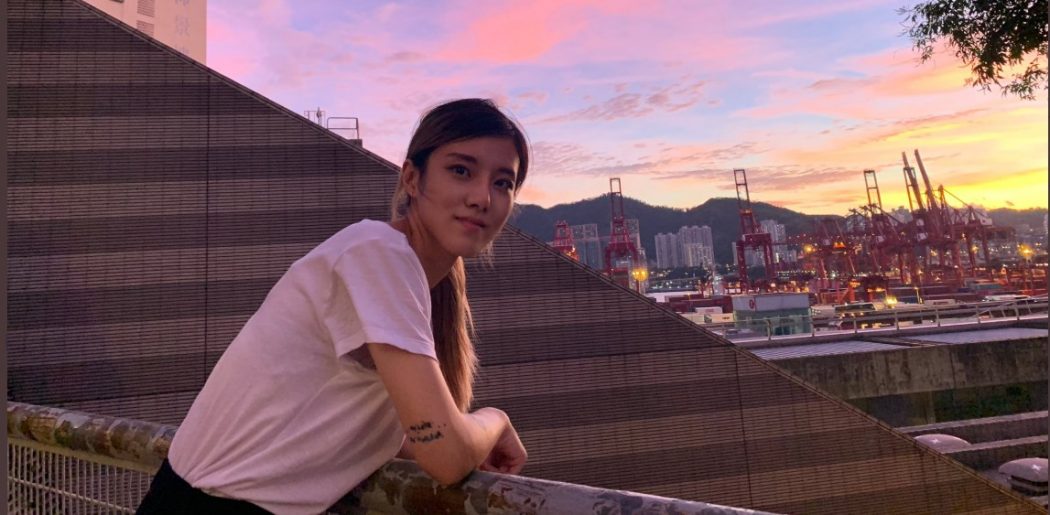
To Wong, the most frustrating challenge is when her gender gets in the way of political progress. As with other female politicians, people regularly care more about her looks than her politics. Netizens will scrutinize whether she’s wearing an appropriate amount of makeup, or criticise her dress for being too short, tight-fitting, or even conservative, much sooner than they’ll consider her policies.
Every day she must weigh whether to dress in a way so that she doesn’t “stand out” – a political sacrifice because it will mean her policies receive less attention – or dress nicely and put herself at risk of sexual harassment, she said.
“I’m sick of people criticising or commenting on my appearance, on whether I look sexy or not, or if I’m with or without makeup… There are times when I want to promote a bill or an issue when I’ll deliberately dress less ‘good’ or less ‘sexy’ in the eyes of the people.”
“Women need to work a lot harder than men to push their message through or get their work recognised,” Ho said. Not least if they do not wish to use their body for political gain, she added.
The tendency is problematic because a woman may be unwilling to use her sexuality as a tool for winning public attention, creating a lose-lose situation in which they must either sacrifice their feminist principles for the chance of winning office.

Jocelyn Chau, an independent district councillor in the Eastern District, said the most common type of harassment was people accusing her of prostituting herself or simply being offered money in exchange for sex.
She said she has received phone calls from men who have moaned into the phone as though they are masturbating. When she has posted photos of her work, internet commenters often joke they have added the images to their “wank bank.”
“As woman politicians, we are easy targets to attack online,” Chau said. “Every post about me is about sex, about wanting to have sex with me, or someone who wants to jerk off to my legs.”
“I would really hope that people could focus on my political or community work, not my face or body. My appearance will age over time but my work will not – and it is actually helping the community. How attractive I am does not relate to my ability as a politician.”
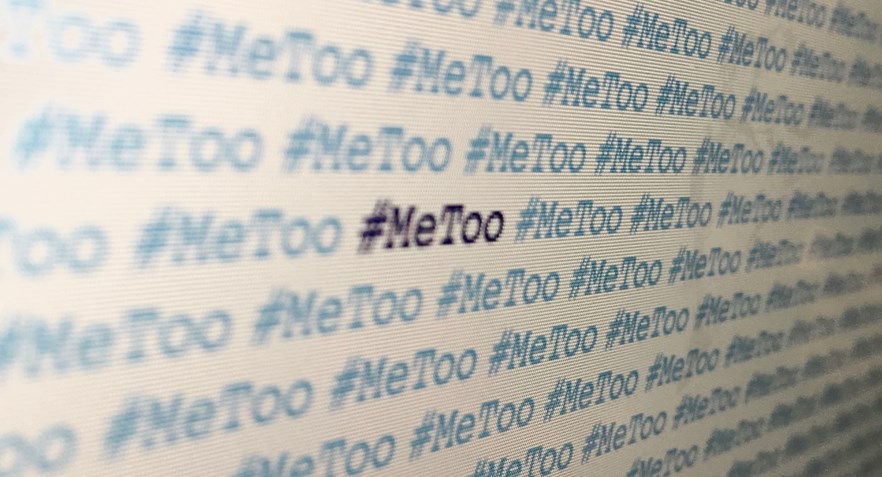
A spokesperson for the Association Concerning Sexual Violence Against Women, also known as RainLily, said both online and offline sexual harassment often causes severe levels of disruption and distress to the victim.
Women face significantly more harassment than men due to the way in which Hong Kong society is structured, they said, since women are still considered to be secondary to men – sexually and otherwise.
“Sexual violence is disproportionally used as a weapon to harm women, whereas this might be less commonly used against male politicians. The prevalence of sexual harassment in different social settings, particularly in attempts to block women’s participation in public affairs, is significantly related to our social norms and cultural values, in which women’s sexuality is always seen as subordinate to men.”
Kapai added that, as social media has become more influential in winning elections and politics at large, they have also served to amplify sexism and sexual harassment, where narratives can quickly spin out of control.
Gender issues and cultural sexism can seem like entering into a gaping wormhole, yet activists have found increased visibility has also generated new methods and opportunities to spread awareness.
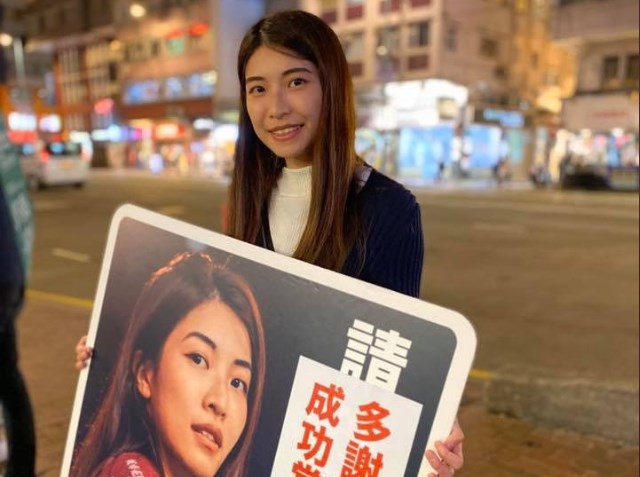
When Chau was arrested in relation to a protest and detained at a hospital for treatment, a female police officer allegedly pulled open a curtain while she was using the toilet so that everyone in the room – men and women – saw her wipe.
Chau has also struggled with strangers who have stalked her in person. On more than one occasion, men have recognised and followed her. One man, in particular, has shadowed her on several occasions over a period of more than a year. He also approached her and rubbed his crotch in front of her a number of times, she said.
She said she contemplated filing a restraining order against the man, but after her experience at the hospital and allegations that police have sexually harassed and assaulted protesters, she does not think it would be of much help.

Referring to a case where a woman accused officers of gang-raping and impregnating her in a police station, only to be threatened with arrest on suspicion of lying, Chau said she worried that requesting aid from the force could likely worsen her own situation.
“I don’t think calling the police would be beneficial in any way because of their selective responses. I don’t trust the police to help us, neither as a politician nor as a citizen, ” she said.
Calls for action
Kapai called for Hong Kong’s Equal Opportunities Commission (EOC) – a government body established to combat discrimination – to crack down harder on gendered inequality. They should also show more understanding towards victims who may not want to come forward publicly, she said.
“When this was happening in our communities, they stayed silent because of their own political interest.”
When the #MeToo movement arose in 2017, the EOC invited victims of sexual harassment to come forward and concluded there was not a problem because very few people spoke up.
“There have to be more effective ways, because people don’t currently want to be identified because of political consequences. We need to find other ways to reach out, yet absolutely nothing is happening. If anything, the authorities have continued to discredit victims who have come forward,” Kapai said.
“We need to call for men to understand that they have a role in challenging other men when they engage in this kind of behaviour. They need to say ‘you are not allowed to say that!’. Otherwise, they are just enabling the behaviour.”
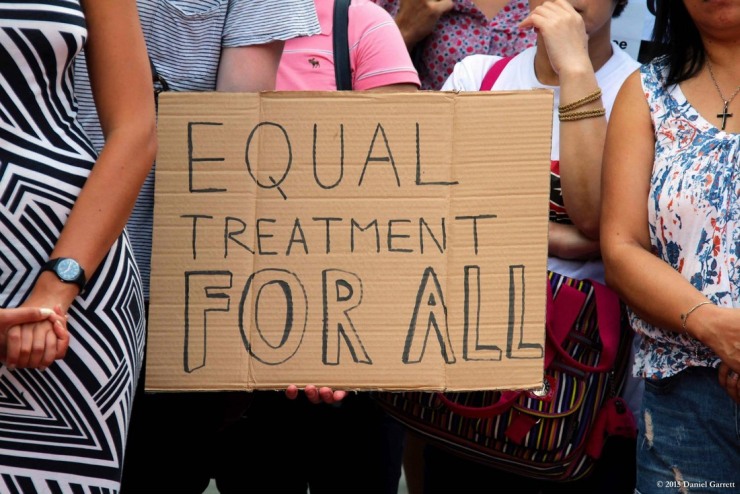
A 2019 EOC report found one in every four surveyed university students in Hong Kong had experienced sexual harassment. Likewise, a study from 2018 found one-tenth of women working in the service sector had reportedly been sexually harassed in connection with their work. And in a 2017 survey by The Woman Foundation, two-thirds of Hong Kong women said they had felt discriminated against based on their appearance.
Women are generally underrepresented in Hong Kong’s political system. In the city’s highest level of government, the Legislative Council (LegCo), only 11 out of 70 seats are currently occupied by women, fairing poorly with most countries with democratic elections.
While the world average for the proportion of women in an upper body of legislature is 24 per cent, only 16 per cent of lawmakers in the LegCo are women. In the district councils, just 79 out of 431 seats were held by women in 2015.
Positive discrimination
According to Ho, female politicians often receive more attention on social media than their male counterparts. Yet positive comments often reflect a subconscious sexist culture in Hong Kong, too.
It bothers her that her supporters consider her special because she is running for office as a woman, indicating that women are considered less fit for political office. She noticed a trend that people mostly like or share her content because of her gender, and when they do, they do so because “‘she is a woman, and it’s a breakthrough for her to be doing political stuff,’” Ho said.
“This is because they think that women are weak… When people have recognised me on the street, some have complimented me by saying ‘you are so brave! You are fighting and speaking out even though you are a woman!’”

Tiffany Yuen, an independent district councillor in the Southern District, said daily sexual harassment made her feel that her work was generally undervalued because of her gender.
“Even though I feel quite angry – like, I am trying to let the voice of my district be heard, not show off my body – I reply positively. I need to show them that I am not scared, and that I will not give them the satisfaction,” she told HKFP.
Even nicer comments can be problematic because they are based on her appearance, not her work or political ambitions. When unrelated to her work, they are generally unnecessary and unwelcome.
“What I’m wearing does not mean people are allowed to comment on my body. It’s not my fault,” she said. “No woman in any political party should face harassment based on their face, body, or private life. Even if they are pro-government, they do not deserve attacks like this,“ she added.
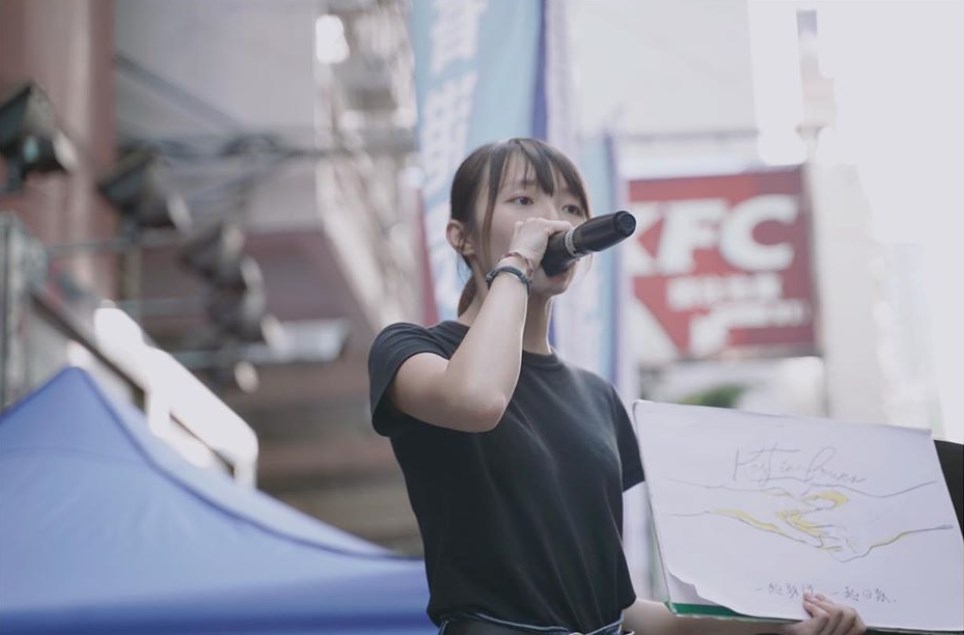
The issues are not exclusive to conservative political contexts, according to Ho. When Demosisto began devising their strategy for her social media campaign, she felt baffled and frustrated by their ideas.
Colleagues from the liberal party’s media team encouraged her, half-jokingly, to just post pictures of her face or body that looked sexually appealing. Seemingly, her politics were secondary to her sexuality when planning how to win voters, she said.
Kapai, the associate professor, added a feminist campaign for public office can either be a surefire success or plunge into failure, depending on the candidate – and, more importantly, their gender.
“If you told me a male politician is going to run as a feminist, they’d likely win and be very popular and attract a lot of votes. But if you tell me a female politician is doing that, some of them would probably be hated. I say this because all the studies on the subject show that society doesn’t think women can be good leaders.”
Political weapon
Before the protests started a year ago, people from all sides of the political spectrum harassed her equally, Wong said.
Since the rise of the pro-democracy protest movement last June, attacks from pro-government supporters have become more frequent and intensified in vulgarity with sexual harassment used as a political weapon, she said. Before the protests started, the pro-government wing didn’t pay much attention to her at all, she added.
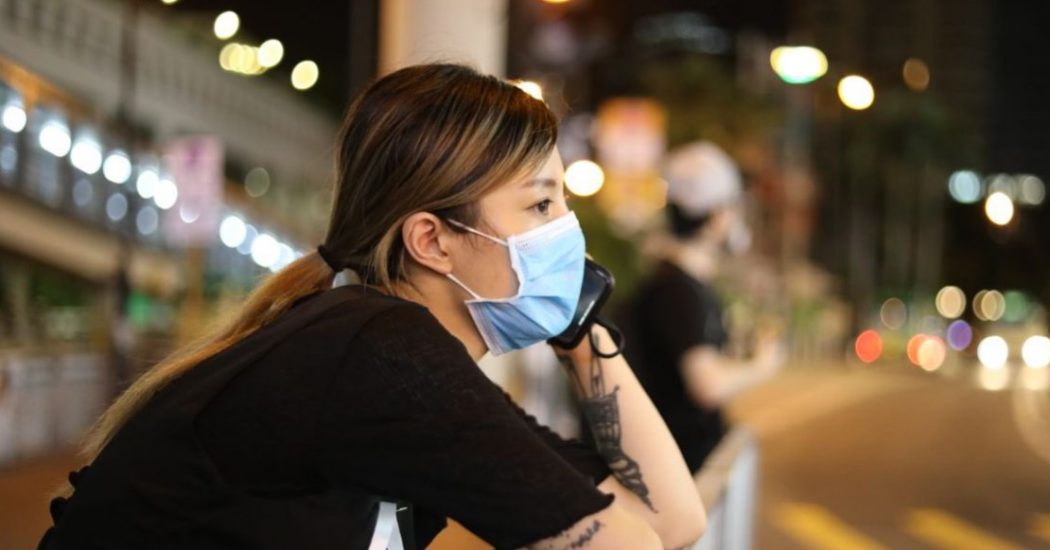
When pro-Beijing supporters photoshopped her to look like a prostitute, she said she was able to shrug it off despite finding it “disgusting,” because those people were already her political opponents, so it felt less personal. But pro-democracy supporters harassing her is a particularly large source of frustration because they are supposed to be her allies, she added.
“For the pro-democracy camp, what angers me is when they say like ‘do you have to dress like this to promote Hong Kong independence?’ or ‘she is wearing that outfit to stand out or draw attention.’ I genuinely want to help Hong Kong. I just don’t think it makes sense to compare what I wear to my work. I have my freedom to wear what I want. This makes me very angry.”
“When I see pro-democracy people comment, I care more because we are supposed to be in the same boat, fighting for the same things. But I think no matter what stance they are, these sexist comments should not even exist.”
Correction 19.00: A previous version of this article misattributed a quote – Puja Kapai said that social media amplified sexism and sexual harassment, not NGO Rainlilly. The article has been updated.
